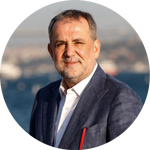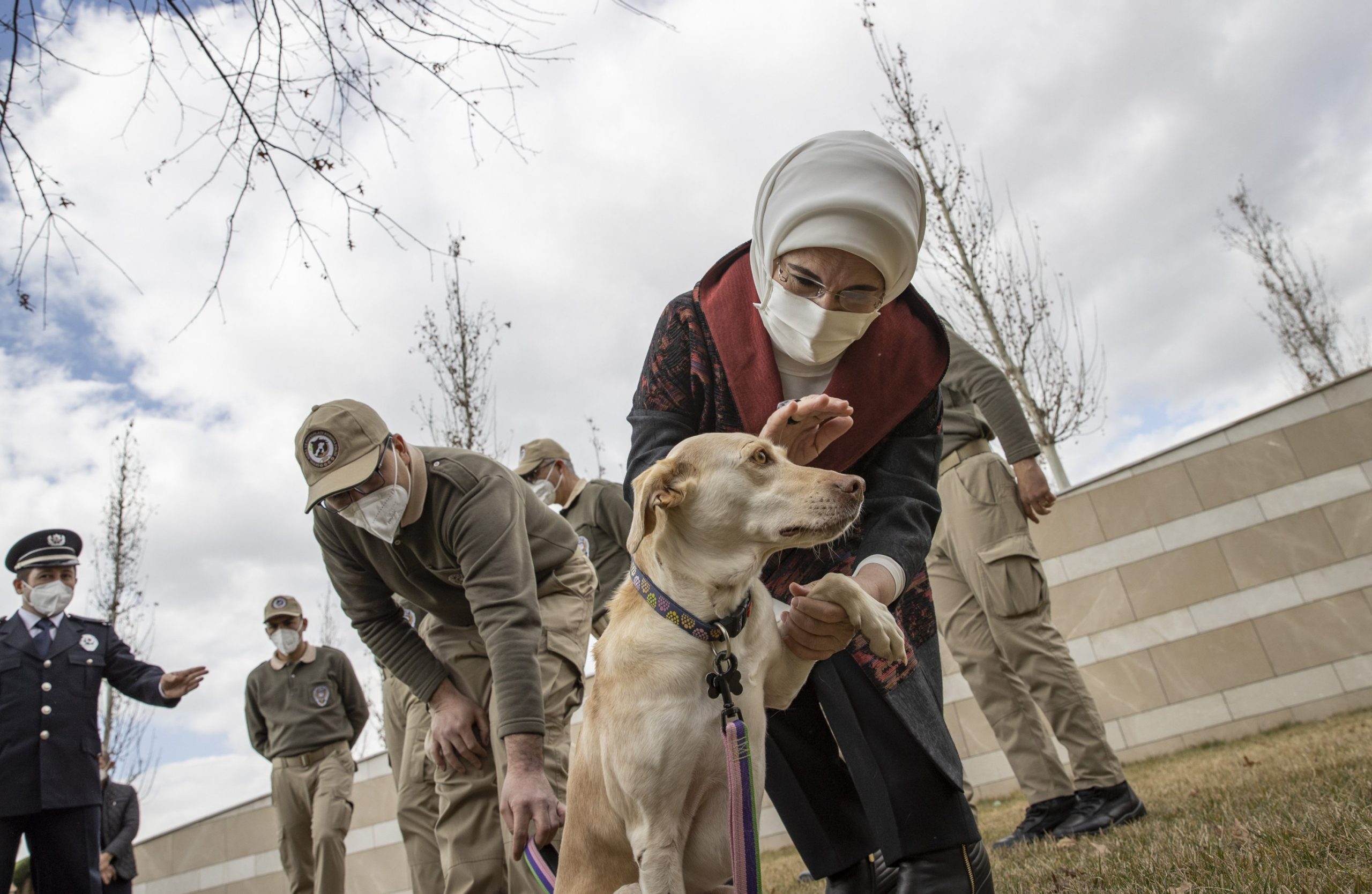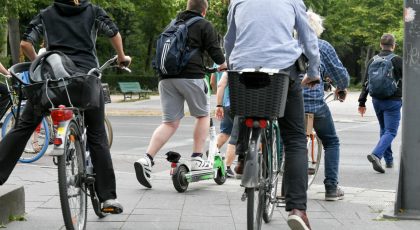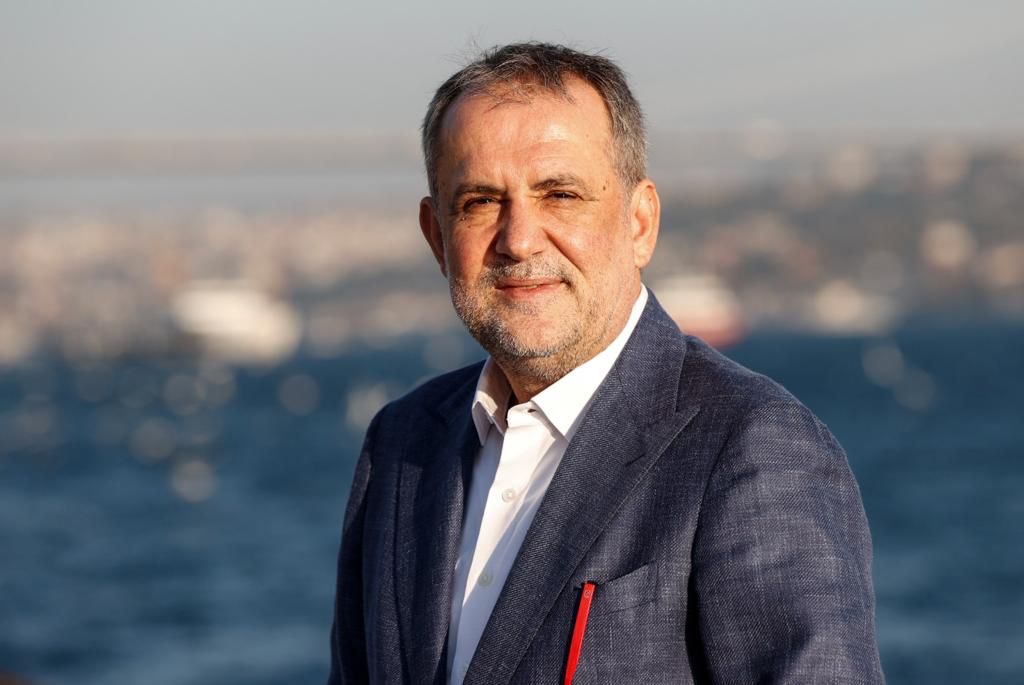The expectation of an increasingly comfortable life is one of the most important factors that make up a consumer society. However, because our natural resources are limited, we have come to yet another impasse. This makes it necessary to use resources effectively and efficiently and return to a life without waste.
According to the United Nations Environment Program (UNEP), the processing and use of resources have seen a thirteenfold increase in the last century alone. Global resource utilization soared to 90 billion tons recently from 7 billion tons at the dawn of the 20th century. However, on the other hand, the population skyrocketed by five times from 1.5 billion to 7.7 billion, indicating that individual consumption rose by two to three times.
Human beings are constantly building structures to make life easier. According to new research published in the journal Nature on Dec. 9, 2020, all human-made material (buildings, vehicles, dams, roads, etc.) has reached a weight equal to the weight of all living beings on Earth (aquatic creatures, terrestrial animals, plants and trees, humans, etc.).
According to the study, the amount of plastics, which entered our lives after 1950 and are one of the major environmental problems today, is almost two times the weight of aquatic and terrestrial animals on Earth. But all these structures have a lifetime, and sooner or later, they will become waste. So, we can say that we are producing garbage dumps.
In parallel, it could be suggested that the problems that previously had an impact on a local basis have gradually grown today, creating global impacts. Therefore, environmental issues have reached an unignorable point.
Seeing that the environment is a part and parcel of growth, humanity has come to discuss it as a common concern about the future. Certainly, all of these developments make it necessary to develop more enduring policies. We see that today’s world has switched to a new order in the face of the problems. It is an environment-centric transformation – an approach aimed at using limited resources more effectively and efficiently, and a step toward a cyclical approach.
What about Turkey?
Turkey is a thriving country. It has a young and dynamic population. Its cities are growing, and urban density is increasing, with 75% of its population living in cities. Its habits are changing, consumption is increasing, and energy needs are increasing. As consumption increases, so does the need for raw materials.
According to TurkStat data, as opposed to an increase of only 3% in the population over the last three decades, resource use, energy consumption and, accordingly, waste formation have doubled in the same period.Beyond any doubt, this shows us that individual consumption has almost doubled. Likewise, the 2018 Waste Report of Turkey published by the Trade Ministry contains data confirming this situation.
The report says that at least one-third of the 49 million tons of fruits and vegetables produced were lost during the production or distribution stage, and the frequency of needless mobile phone and car replacement is less than three years and about five years, respectively, on average.
As for the environment, while environmental sensitivity has been on the agenda around the globe for the last five decades, it has gained currency in our country in the last two decades.
Awareness is growing at both the community and state levels. In this respect, we act on the basic axis of the principle of “Livable Cities, Sustainable Environment.” Indeed, it is a vision that we have grounded on the 10th and 11th five-year development plans.
Waste is one of the primary issues addressed in these plans. In this respect, many steps have been taken to ensure the balance of protection and use of our raw materials and natural resources, to evaluate the inevitably formed waste as a resource again, and thus to become a self-sufficient country.
Storage matters
Various steps have been taken for the effective and healthy management of the waste that we have negligently thrown into nature for years, damaging water resources, historical and cultural areas and agricultural lands. The existing waste should also be managed in a way that does not harm the ecosystem.
In 18 years, the number of sanitary landfills has soared to 90 from 15, marking a sixfold increase. The municipal population that receives sanitary landfill services has increased by about 3.5 times from 23% to 83%. Meanwhile, the resulting storage gas has been evaluated and converted into energy. Since the waste sector is the third most important sector in terms of greenhouse gas emissions, waste needs to be managed effectively.
The electric energy produced in half of the 90 landfill facilities in service is equal to the electricity requirement of 1.5 million houses, contributing to the protection of resources. Moreover, medical waste with hazardous content has been prevented from being thrown into streams.
In this context, medical waste incineration and sterilization facilities have been built. Currently, about 70 facilities ensure the healthy disposal of medical waste exceeding 90,000 tons on a daily basis around the country.
Recycling infrastructure
The world now regards waste as a resource as it is recycled and brought to the industry and economy as input. Reducing external dependence through recycling is one of the main goals. Based on this idea, we have made investments, supported our industrialists and improved relevant legislations.
As a result of these endeavors, Turkey has increased the recycling value from 1% to 13% in 25 years. But it has to increase it further, given that these values are above 40% in most European countries.
Over the last two decades, Turkey’s recycling sector has achieved great growth and development. Giant, modern facilities have come into service in many areas. Also, the rate of recycled waste has risen. While only 1% of 25 million tons of domestic waste was recycled in 2001, this rate has now exceeded 13% thanks to investments. Currently, over 5 million tons of a total of 33 million tons of domestic waste generated on an annual basis is recycled and presented to industrialists as raw materials.
In this way, the input costs for our industrialists are reduced. At least 20% less energy is needed during glass production from broken glass compared to glass production from raw materials such as quartz.
As for aluminum, this ratio may reach up to 99% compared to aluminum production from bauxite, the raw material. If waste is not recycled and is sent to storage, it will lead to both storage costs and additional transport costs. Storage harms not only the environment but also the economy as it is quite expensive. The cost of storing 100,000 tons of textile waste annually, consisting of still-wearable garments, is $300 million (TL 2.1 billion) per year for the economy of New York City, according to the Ellen MacArthur Foundation.
Zero Waste project
Turkey has more assertive projects now, including the Zero Waste project which was launched in 2017 under the auspices of first lady Emine Erdoğan. Within this framework, Turkey wants to increase the rate of recycling at home to at least 35% in 2023, the 100th anniversary of the founding of the republic. This also means that at least 13 million tons of waste will be recycled and presented to the industry and economy as raw materials, instead of being taken to storage areas.
At the same time, we will be able to meet the paper needs of our country with recycled waste paper – which means that we will not need additional imports in this area.
Turkey’s industry has a huge capacity. One of the indicators of this is imports. There has been some increase in the amount of imported waste over the years. Although this is the most obvious indicator of the fact that Turkey has a recycling capacity, we tend to turn to solutions abroad due to the inadequate collection infrastructure.
Turkey has launched a 50% import quota application, and it will zero out it soon. First, the country will utilize its own waste. In this respect, it has introduced recycling participation, a deposit system and an environmental agency. The Zero Waste project is the first environmental project pioneered by a first lady in the world. She has taken an active role in all the issues regarding the environment, nature and society.
Her efforts did not go unanswered, and she was awarded by the United Nations Food and Agriculture Organization (FAO) in 2018 for her environmental sensitivity.
The main goal of the project is to prevent waste, use resources more efficiently, and reuse and recycle the resulting waste instead of storing it. It is a perfect circular economy model application. The system includes everyone. Zero waste documents are issued to restaurants, cafes, hotels, schools, public buildings, businesses and even municipalities that install zero waste systems.
Studies and developments in this regard are being recorded and monitored. As part of the practice, food waste prevention is also addressed. At this point, studies are being carried out within the theme of “Zero Waste, Zero Hunger.”
Turkish ministries, the business world, municipalities and universities have all embraced it. After all, it is a move in which all of the Turkish people will win, and none of us will lose.
Turkey has come to reap the fruits of it. In two years, 9.5 million people have been trained, 53,500 institutions and organizations have switched to the program and 13,000 buildings have been given a basic-level zero waste certificate.
Moreover, the country has collected 17 million tons of utilizable waste since 2017, generating TL 17 billion in profits and saving 345 million cubic meters of water – which is getting increasingly important due to declining precipitation. Turkey aims to reach a recycling rate of 35% in 2023, creating a direct economic gain of TL 20 billion on an annual basis and 100,000 jobs. Turkey is taking all of the necessary steps to achieve this.
Environment Agency
This year, Turkey is adding a new step to the wide-ranging revisions to the Environment Law. An environmental agency will be founded as per the proposal of the law on the founding of the Turkish Environment Agency, which went through the Planning and Budget Commission in November and is now being discussed in Parliament.
One of the primary services that the agency will be rendering is to manage the deposit-return system. Deposit is a mechanism for the efficient collection of waste. The practice has a fairly simple operation. The packaging price is listed on the product. The fee is refunded when the package is returned. It does not impose a financial burden on people. It is an incentive for them to bring back their waste.
Although the system seems simple in practice, it is certainly more difficult to manage. After all, we are talking about over 20 billion packages annually and their follow-up. It is a system in which many stakeholders must work in coordination. So, central management is important. The Environment Agency will act as an umbrella organization to establish the central management of the system. It will follow and monitor 20 billion beverage packages in the market. It will also prevent them from going into the wastebasket after they are used.
It will cleanly collect them and send them to the recycling industry to be used as raw materials. In this way, both the waste and sanitation costs for Turkish local administrations will be reduced and industrialists will be offered cheaper and easier-to-process raw materials. As part of the mandatory deposit to be applied on beverage packages as of 2022, Turkey will prevent the generation of at least 1 million tons of waste and make TL 1 billion in financial gain annually.
Required actions
The environment, nature and universe are an area of common life not only for us but for all living beings. So, all of us are responsible for maintaining the natural balance of the environment and preventing pollution. All of us have an impact on our planet. We can describe environmental pollution as the damage caused by humanity to nature.
Let us note that anything in a country can improve, be it the economy, foreign policy or the justice system; however, we cannot restore nature to its previous state after a certain stage. All states should prioritize this. Preventing waste formation undoubtedly requires less cost than managing the resulting waste.
With this impetus, I would like to note that consumers can change some of their habits, for instance, they can use reusable products instead of disposable ones, and can thus make great contributions to our country, our environment and our future. So, Turkey has to change and lead the change around the world. Europe, China and Chile have a goal of being carbon neutral. Turkey also has opportunities and capabilities to achieve this.
As long as Turkey uses these opportunities moderately and properly, it can return to its own essence, live an environmentally friendly life and use its resources more effectively and efficiently.





